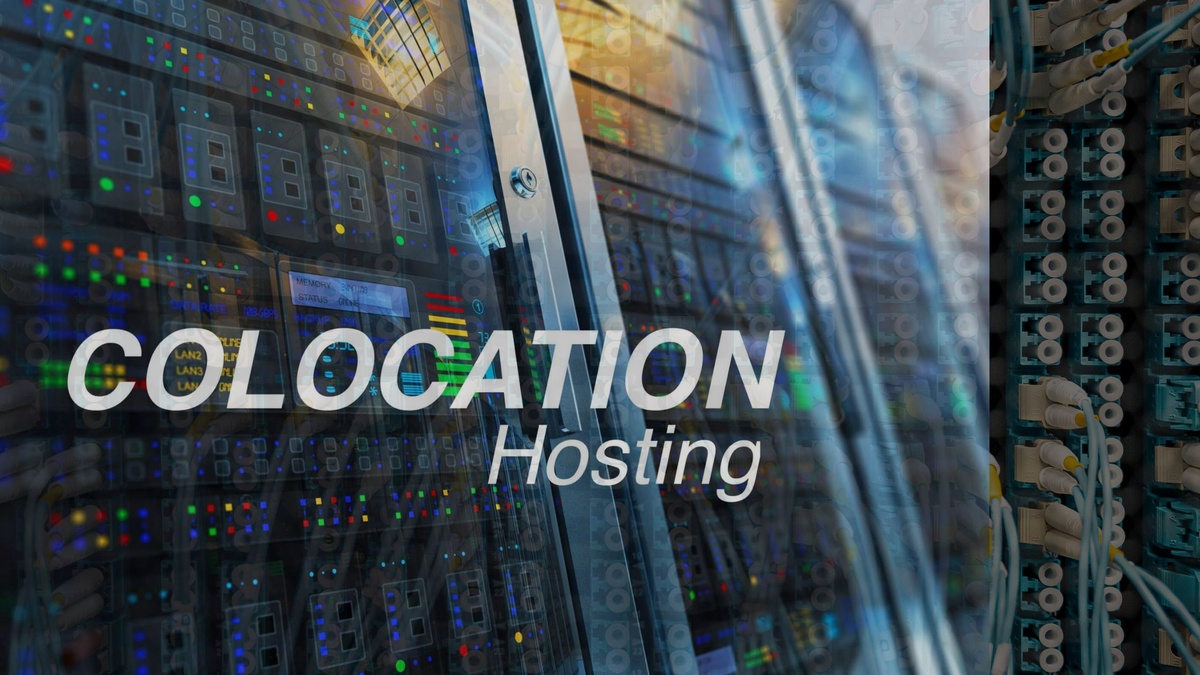In an era marked by digital advancements, businesses face unprecedented challenges in safeguarding their data and ensuring seamless operations, especially in the face of disasters and cyber threats. This article explores the critical role of colocation hosting services in managing disaster strikes and securing data effectively. By understanding the nuances of disaster recovery planning and data security measures in colocation hosting services, businesses can fortify their online presence, ensuring resilience against unforeseen events.
Table of Contents
I. Introduction
- Significance of Disaster Recovery and Data Security
- Introduction to Colocation Hosting Services
II. Understanding Colocation Hosting Services
- Definition and Features of Colocation Hosting
- Role of Colocation Hosting in Disaster Recovery
III. Disaster Recovery Planning with Colocation Hosting
- Importance of Disaster Recovery Planning
- Colocation Hosting's Contribution to Effective Disaster Recovery
- Failover Systems and Seamless Transitions
IV. Data Security Measures in Colocation Hosting
- Encryption, Firewalls, and Intrusion Detection
- Regular Security Audits and Real-time Threat Monitoring
V. Managing Natural Disasters and Geopolitical Risks
- Geographical Redundancy and Disaster Mitigation
- Colocation Hosting in Politically Unstable Regions
VI. Best Practices for Disaster Recovery and Data Security
- Data Backup and Encryption Best Practices
- Disaster Recovery Testing and Staff Training
VII. Choosing the Right Colocation Hosting Provider
- Checklist for Evaluating Colocation Hosting Providers
VIII. Conclusion
IX. FAQs
Understanding Colocation Hosting Services
Colocation hosting involves housing servers and other computing hardware in a third-party data center. Unlike traditional hosting, businesses own the physical servers, while the data center provides power, cooling, bandwidth, and physical security. This arrangement grants businesses full control over their servers' configuration, enhancing security and customization options.
Role of Colocation Hosting in Disaster Recovery
Colocation hosting services play a pivotal role in disaster recovery planning. By leveraging redundant power sources and backup systems, colocation hosting ensures uninterrupted operations even during power outages or other disasters. Failover systems facilitate seamless transitions to backup servers, minimizing downtime and maintaining business continuity.
Disaster Recovery Planning with Colocation Hosting
Importance of Disaster Recovery Planning
Effective disaster recovery planning is critical for businesses to minimize downtime and data loss during disasters. Colocation hosting providers offer robust solutions, including data backup, failover systems, and geographically redundant servers, enabling businesses to swiftly recover from unforeseen events.
Colocation Hosting's Contribution to Effective Disaster Recovery
Colocation hosting services provide businesses with the infrastructure needed for comprehensive disaster recovery planning. By hosting servers in secure, resilient data centers, businesses can ensure their critical data remains accessible, even in the face of natural disasters or cyber-attacks. Colocation hosting providers often offer redundant power sources, network connections, and backup solutions, bolstering disaster recovery capabilities.
Failover Systems and Seamless Transitions
Failover systems are designed to automatically switch to backup servers if the primary servers fail. Colocation hosting services often employ sophisticated failover technologies, ensuring seamless transitions without disruption to user experience. This rapid response mechanism minimizes downtime, making it crucial for businesses relying on continuous online operations.
Data Security Measures in Colocation Hosting
Encryption, Firewalls, and Intrusion Detection
Colocation data centers implement robust security measures to protect client data. Encryption protocols safeguard data during transmission, while firewalls and intrusion detection systems prevent unauthorized access. Regular security audits and real-time threat monitoring further enhance the security posture, ensuring data integrity and confidentiality.
Managing Natural Disasters and Geopolitical Risks
Geographical Redundancy and Disaster Mitigation
Colocation hosting providers strategically choose data center locations to mitigate natural disaster risks. By hosting servers in geographically diverse locations, businesses ensure that a regional disaster does not affect all their operations. This geographical redundancy ensures that even if one data center is affected, operations can continue from other locations.
Colocation Hosting in Politically Unstable Regions
For businesses operating in politically unstable regions, colocation hosting offers a secure solution. By hosting servers in stable, politically neutral locations, businesses can protect their data from potential government interventions or regional conflicts. Colocation hosting providers often adhere to strict legal and compliance standards, ensuring data confidentiality and regulatory compliance.
Best Practices for Disaster Recovery and Data Security
Data Backup and Encryption Best Practices
Businesses should establish regular data backup routines, ensuring that critical data is duplicated and stored securely. Encryption of sensitive data adds an extra layer of security, rendering it unreadable to unauthorized users. Implementing strong encryption protocols both at rest and during transmission safeguards data from potential breaches.
Disaster Recovery Testing and Staff Training
Regular testing of disaster recovery plans is essential to identify weaknesses and refine strategies. Conducting simulated disaster scenarios allows businesses to assess the effectiveness of their plans and make necessary adjustments. Additionally, training staff members in disaster response procedures ensures a coordinated and efficient response during crises.
Choosing the Right Colocation Hosting Provider
Checklist for Evaluating Colocation Hosting Providers
- Security Measures: Assess the provider's security protocols, including physical security, network security, and access controls.
- Compliance: Verify that the provider complies with relevant regulatory standards and industry-specific regulations.
- Redundancy: Ensure the data center has redundant power sources, internet connections, and backup systems to guarantee uninterrupted operations.
- Support and Response: Evaluate the provider's customer support services, including response times and expertise in disaster recovery planning.
Conclusion
In conclusion, colocation hosting services offer businesses a robust solution for managing disaster strikes and securing data effectively. By understanding the critical role of colocation hosting in disaster recovery planning, businesses can proactively safeguard their operations against unforeseen events. Implementing best practices such as regular data backups, encryption, and staff training, coupled with choosing a reliable colocation hosting provider, ensures resilience and security in the face of disasters and cyber threats.
Frequently Asked Questions (FAQs)
Question 1: What is colocation hosting, and how does it differ from traditional hosting?
Answer: Colocation hosting involves businesses owning their physical servers but housing them in third-party data centers. In contrast, traditional hosting services provide both the server hardware and hosting environment.
Question 2: How does colocation hosting ensure data security?
Answer: Colocation hosting providers implement encryption, firewalls, intrusion detection systems, and regular security audits to protect client data. Additionally, hosting servers in secure data centers with controlled access enhances overall data security.
Question 3: What role does geographical redundancy play in disaster mitigation?
Answer: Geographical redundancy involves hosting servers in multiple locations, ensuring that a disaster in one region does not disrupt all operations. This strategy minimizes the impact of regional disasters on business continuity.
Question 4: How can businesses ensure their disaster recovery plans are effective?
Answer: Regular testing of disaster recovery plans through simulated scenarios helps identify weaknesses. Additionally, staff training ensures a coordinated and efficient response during disasters, enhancing the effectiveness of the plans.


No comments yet